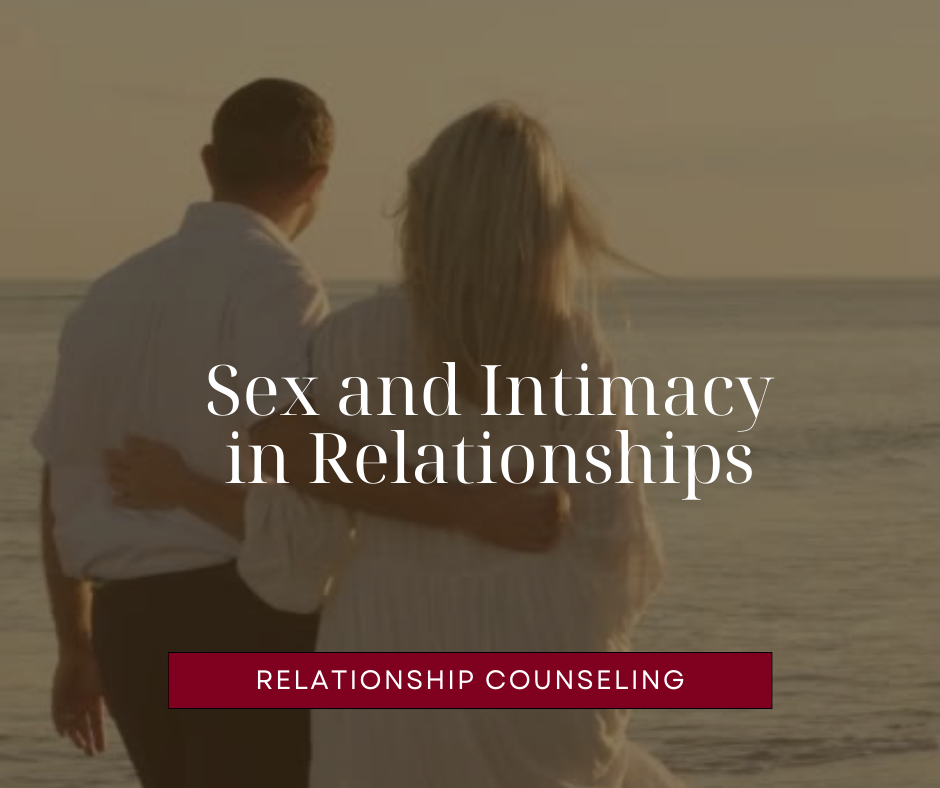Sex and Intimacy in Relationships
Sex and intimacy are integral aspects of the human experience, profoundly impacting our physical, emotional, and psychological well-being. These two interconnected elements play a crucial role in shaping our relationships, self-identity, and overall quality of life. For many couples, sexual intimacy and being satisfied is an important in their relationship. Sexual and emotional intimacy contribute to our overall sense of happiness, belonging, and fulfillment.
Emotional connection involves sharing thoughts, feelings, and vulnerabilities with a partner, creating a deep sense of closeness and trust. It forms the foundation of healthy relationships, allowing partners to bond on a profound level. Sex is often viewed as a physical manifestation of emotional intimacy and love. Providing an opportunity for partners to connect on a primal level, reinforcing their emotional bonds. For some, sex and emotions are not necessarily connected but for many couples, they are profoundly interlinked.
Engaging in both sexual and emotional intimacy can lead to reduced stress, increased self-esteem, and a sense of security. Studies suggest that individuals in fulfilling relationships tend to report higher levels of life satisfaction. However, while sex and intimacy can bring immense joy and connection, they can also be fraught with challenges such as:
Communication: Effective communication is crucial for fostering emotional intimacy. Misunderstandings, unexpressed desires, or conflicts can hinder this connection.
Trust: Trust is the bedrock of intimacy. Past traumas, betrayals, or insecurities can erode trust and make it challenging to build emotional intimacy.
Desire Discrepancy: Differences in sexual desire between partners can lead to frustration and dissatisfaction, requiring open dialogue and compromise.
Societal and Cultural Influences: Societal norms, stereotypes, and cultural expectations can impact one's comfort with their sexuality and the expression of intimacy.
Aging and Health: Age-related changes in physical health can affect sexual function, requiring adaptation and communication within relationships.
Fostering Healthy Sex and Intimacy
Building and maintaining a healthy sexual and emotional connection requires effort, commitment, and a willingness to navigate challenges:
Open and Honest Communication:
Share your thoughts, feelings, and desires with your partner.
Listen actively and empathetically to their needs and concerns.
Trust-Building:
Address past trust issues with care, and work together to rebuild trust.
Consistency, transparency, and patience are key.
Quality Time:
Spend quality time together, engaging in activities that deepen your emotional connection.
Prioritize date nights, shared hobbies, and open conversations.
Self-Exploration:
Understand your own desires and boundaries to communicate effectively with your partner.
Consider seeking professional help if necessary.
Seek Professional Guidance:
If challenges persist, consider couples counseling or therapy to address deeper issues.
Sexual therapy can help couples navigate sexual difficulties.
Sex and intimacy are intertwined elements of the human experience, contributing significantly to our overall well-being and the quality of our relationships. While they bring joy and connection, they can also present challenges that require effort, patience, and open communication to overcome. Fostering healthy sex and intimacy involves creating a strong emotional connection, building trust, and addressing obstacles that may arise along the way. Ultimately, nurturing these aspects of our lives can lead to greater fulfillment, satisfaction, and a deeper sense of connection with our partners and ourselves.
If you’d like to explore any of these aspects further, whether as an individual or as a couple, click here to request a session.
I am a PhD in Clinical Sexology candidate at Modern Sex Therapy Institutes and have a Master of Science in Educational Psychology. I work with individuals, couples, non-monogamous relationships, and groups in topics related to sexuality, emotional regulation, communication dynamics, and changing behaviors.


